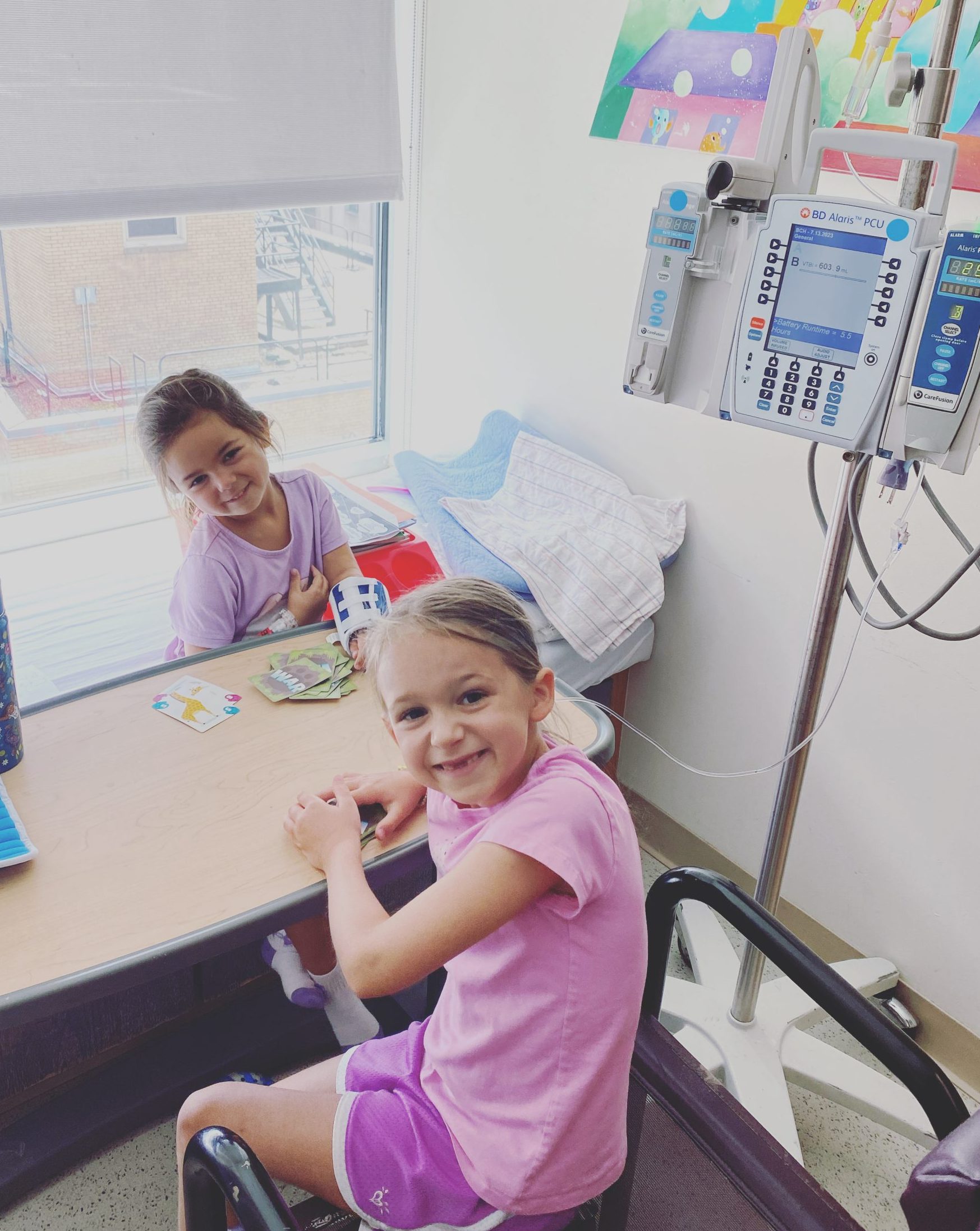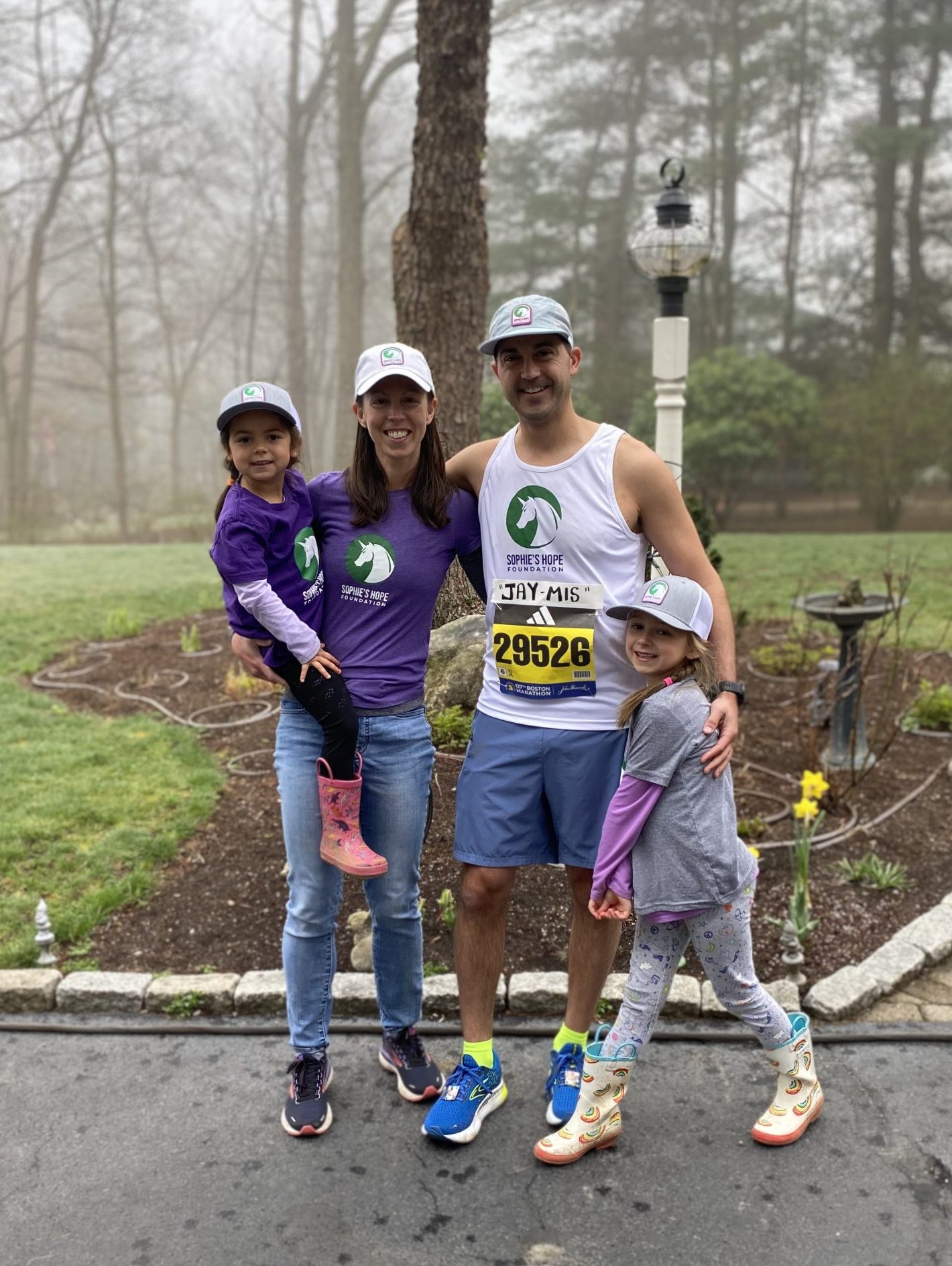Our daughter was born with a rare genetic metabolic disease called Glycogen Storage Disease Type 1B. Her body is unable to access the stored form of glucose (called glycogen) from the liver. The current treatment for her disease is scheduled doses of cornstarch in combination with a strict diet which limits carbohydrates and restricts sugar. However, there is no window into the body’s metabolic needs. Metabolic demand (need for glucose) can increase with illness, activity, hormonal changes…anything really and so it is very difficult to control our daughter’s blood sugar with the current treatment option.
Living with Glycogen Storage Disease, Type 1B is most certainly “living a chronic crisis existence”. We live hour to hour, cornstarch dose to cornstarch dose. A missed dose of corn starch could lead to hypoglycemia, seizures and even death. Our daughter’s life depends on these scheduled doses of cornstarch delivered EVERY 2-4 hours with no room flexibility in the schedule. To be effective meals and doses need to be delivered at the same time everyday – this treatment demands perfection.
The treatment regimen affects so much of our lives. I had to transition my career from a full time medical professional to a per diem role to accommodate the demand of my daughter’s health needs. This puts an added burden on my husband to provide. Certain activities can be very taxing on my daughter’s body, limiting what she is able to participate in. These limitations can be hard to explain to a young child working to fit in with her peers. The demanding treatment schedule limits our families capacity to travel or to only do so with lots of supplies at hand and always with the risk that we will be too far from doctors who understand her rare condition. But perhaps the most significant impact is sleep deprivation which my husband and I as well as our daughter suffer from. Our lack of sleep contributes to our anxiety levels and our sense that we are always living in a chronic crisis state.
Whenever our daughter is ill, I experience heightened anxiety. I know I need to remain in a hyper-vigilant state while she is ill to keep her safe. A simple virus for our daughter could lead to a hospitalization. I work in healthcare and I have always felt calm and at ease in hospitals. Trauma associated with finding “good” care for our daughter and our experience in emergency situations has led me to feel the opposite. GSD is incredibly rare and even at the most prestigious hospitals there is a knowledge deficit on how to care for a GSD patient. When a GSD patient is unable to drink or eat their cornstarch, they need emergent management with IV dextrose for survival. If a patient’s IV malfunctions while receiving dextrose they are at risk for severe hypoglycemia, seizures, and death. Patients and caregivers must remain hyper-vigilant to ensure they are receiving the correct treatment to survive.
I recently found this quote that described perfectly what is happening to members of my family.
“It is difficult to move through the stress cycle because there is constant stress and crisis. The human body is meant to handle an acute challenge. Your adrenaline kicks in and then resolves back to baseline once the stressor or situation passes. With chronic crisis the crisis lingers. Cortisol kicks in appropriately at first and then stays elevated. Without meaningful action and intentional cognitive practices, the chronic stress reaction becomes toxic to your mental and physical well-being.”
I feel I cannot discuss the idea of living a “chronic crisis existence” without discussing grief. All caregivers experience grief in varying degrees throughout their rare disease journey. I grieve that her body does not have the capability to regulate blood sugar and the limitations this disease puts on her body. I grieve that her brain is being withheld the vital glucose it needs to function. I grieve the life I imagined for my child and the impact this disease has on our day to day lives. I think about her future and the demands this will put on her as she gets older and must manage this disease as an adult. I grieve for all the other patients and families living with GSD and the relentless demand it places on us all.
As a rare disease parent, you do what you must do because there is no other choice. I must make a conscious effort to tell myself I am doing the best I can with the treatment that is available. I have made a lot of changes in my life over the past year to prioritize my own mental health. I highly value connection and community and have been able to find some comfort within the GSD 1b community as well as the rare disease space. GSD 1b patients and adults face their own mental health challenges, with every age and stage there is something new to manage – a never ending cycle. My hope is by sharing my own vulnerability and mental health struggles it will lead to connection and help others.




